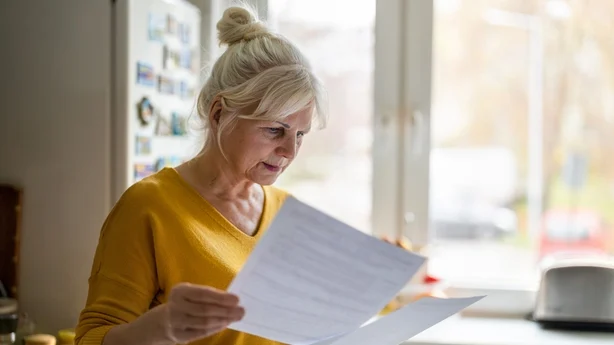'Financial wellbeing' has become the buzz phrase over the last five years, especially when it comes to employee mental health.
In a recent survey, Grant Thornton found employees in the workplace all suffer from stress. They also found that 70% of that stress was financial. Adding financial, therefore, to that wellness list is now de rigeur and a really brilliant time to address your finances as we cope with wars, pandemics, global economic uncertainty and changing financial circumstances.
We need to face reality, we need to make a plan and then follow that plan. Ultimately, financial planning is about tailoring a solution to meet your precise requirements. This should include financial wellbeing.

We all have needs, most of them the same as all other people. Here are the 10 most important financial needs according to John Lowe of MoneyDoctors.ie:
1. Having an emergency fund to cover unexpected expenses
Usually three to six months net annual income in a totally accessible deposit account (best demand rate 0.25% gross (online saving account from AIB Bank) for emergencies, sudden loss of income or that investment opportunity.
2. Paying off any expensive personal loans and credit card debt
If you only pay the minimum balance of your credit card debt each month, it could take you up to 20 years to totally clear that debt! A sobering thought. Transfer your card balance at 0% - best of them is An Post Money at 12 months.

3. Short-term saving for cars, holidays, and so forth
Remember holidays come around every year so there is no point in taking a 3 year loan for your summer holiday unless you plan to sit at home for the next two years after the holiday ! Christmas loans should only be for one year too.
4. Income protection, in case you are unable to work for any reason
It also has the added benefit of being the only type of insurance ( outside of a life policy in your pension ) that attracts tax relief at your marginal rate. This especially for sole earners in families. Pays up to 75% of your monthly income less any social welfare deductions and generally after 6 months of incapacitation. Worth looking into.
5. Life assurance for you (and, if relevant, your partner)
Thankfully, it seems that very few of us now smoke. If you are a smoker, though, an added incentive to quit is that if you give it up for 12 months, your insurance premium will be half the cost.
If you have dependents, they need to be protected on a separate stand alone basis in case anything happens to either parent right up to completion of their third level education.
For those living together but not married, remember mortgage protection will pay your mortgage balance but you will still have an inheritance tax issue being eligible for only the € 16,250 "C" threshold…check out the life of another life cover. Email me for details.

6. Starting a pension plan (in my opinion it is never too early)
My word, I could write a book on this. In 20 to 30 years time, I personally believe the government will not have the money then to support the State pension for the 1.8million pensioners at that time. We all need to address this now whatever your age.
Auto-enrolment is meant to come in at the end of this year – too late in my view – but even then it will probably be delayed and it is totally inadequate as it currently stands. More than half the country's working population are hoping to rely on that state pension when they retire as they have nothing else. Don’t be one of them.
7. Buying a home with the help of a mortgage
It is still difficult obtaining mortgage approval and finding the 10% deposit (for second time borrowers too) is as difficult meeting the income requirements of 3.5 times your income (four times for first time borrowers).
There are at least six lenders who will consider giving you more than this as they are allowed under the exemption rule, but be quick as these lenders run out by March/ April.
16 years ago that multiple was five times and in some cases even up to eight times. Those with mortgages should be reviewing their rates to see if they can obtain a better deal – rates are coming down so it is important to shop around.

8. Saving for major purchases
We all need to save but especially for those larger items like a car, deposit for a house or extension. Falling into the Personal Contract Plan (PCP) trap means you have a revolving loan that never ends unless you save for that lump sum to pay off on maturity of the loan. Regular saver accounts do not have attractive interest rates but they force you into saving as generally only one withdrawal is allowed.
9. Planning for education fees (if you have children), whether for private school or university
It cost €42,000 to send one child through third level education in Ireland, and that’s without fees which are bound to be introduced in the coming years (outside of registration fees). It also does not include the cost of a Masters. Saving your Child Benefit from day one (€140 per month) and earning no interest will yield €30,240 when it stops on the 19th birthday. Most families use this money for living purposes.
10. Building up your personal investments
The buzz word is "diversification" – don’t put all your eggs in one basket. While the stock market is the best return of all asset class over any period of time, timing is essential. The 26th BULL (rising) market - only two years shy of the longest, 1987 – 2000, stopped by the DOMCOM bubble bust – was matched March 2020 by the 26th BEAR (falling) market and has been volatile since – gold is a good barometer of the volatility - up 17.5% already this year.
I believe that the stock market is quite easily the best asset class as can be vouched by the growth from 1991 to 2020 – annually it was 10.72%.
To this, I suppose I might add long-term care planning if you’re worried that your pension and/or the state may not provide for you sufficiently in retirement.
For example, those with ARFs and AMRFs still need to manage their monies as they need to produce at least 5.5% return on their pensions each year from age 60 otherwise they will run out of money.
For more information click on John Lowe's profile above or on his website.
Disclaimer: The copyright of this article belongs to the original author. Reposting this article is solely for the purpose of information dissemination and does not constitute any investment advice. If there is any infringement, please contact us immediately. We will make corrections or deletions as necessary. Thank you.






